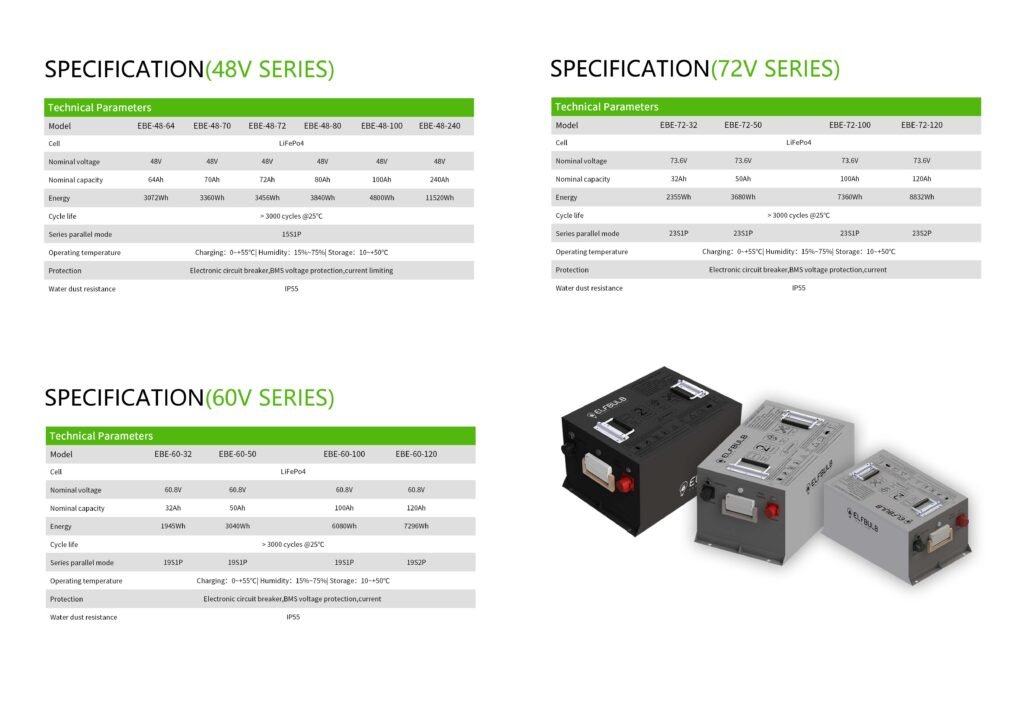Introduction
Golf trolleys have come a long way from the days of manual push carts. Nowadays, electric golf trolleys are a common sight on golf courses, making it easier for players to navigate the fairways without the physical strain. These electric trolleys rely on batteries for power, and traditionally, lead-acid batteries have been the go-to choice. However, with advancements in battery technology, many golfers wonder if they can switch to lithium-ion batteries. In this article, we’ll explore the pros and cons of making this transition.
The Battle: Lead-Acid vs. Lithium-Ion
1. Energy Storage Solutions
- Lead Acid Batteries (LABs): These stalwarts have been the energy storage solution of choice for over 150 years. They are heavy, toxic, and require ongoing maintenance. While they get the job done, their limited performance and inefficiency leave room for improvement.
- Lithium Ferrous Phosphate (LFP) Batteries: Lithium-ion batteries, specifically LFP batteries, offer a superior alternative. They boast twice the energy density, up to four times the usable capacity, and are highly efficient. Plus, they are safe, non-toxic, and maintenance-free.
2. Safety and Toxicity
- LABs: LABs contain dangerous acids that can leak, posing risks to both users and the environment. Proper enclosures and ventilation are necessary to prevent accidents.
- LFP Batteries: LFP batteries are safe, don’t leak explosive gases, and won’t spill sulfuric acid. They eliminate the need for elaborate safety measures.
3. Ease of Installation
- LABs: Heavy and bulky, LABs take up significant space and require careful handling during installation.
- LFP Batteries: LFP batteries are lightweight and compact, making installation simpler and freeing up valuable space on your golf trolley.
4. Longevity and Total Cost of Ownership
- LABs: LABs may last only 3-5 years before needing replacement. Their ongoing maintenance costs, reduced performance, and shorter lifespan limit their value.
- LFP Batteries: A SimpliPhi LFP battery can last 10 years or more, providing 20 times as many charge/discharge cycles under warranty. Despite the initial cost, they prove to be a better investment over time.

Conclusion
While lead-acid batteries have been workhorses, upgrading to lithium-ion batteries offers significant benefits. Golfers can enjoy improved performance, safety, and longevity. As costs continue to decline, LFP batteries are becoming a cost-effective solution for golf trolleys. So, if you’re considering a battery replacement, don’t hesitate to explore the world of lithium-ion technology – your golf game might just thank you!


